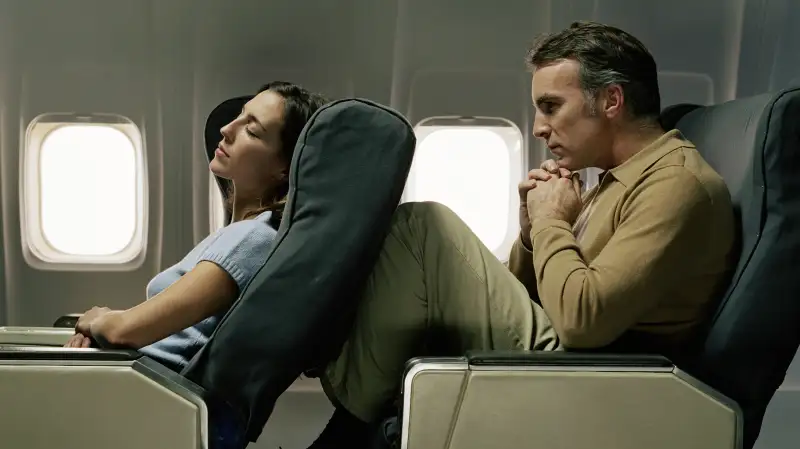The Pathetic State of Airline Travel Today Was Predicted Long Ago

The airline business is complicated. To some extent, however, making a profit is as simple as getting as many passengers on board your company's airplanes as possible, and charging each customer as much as possible for the services provided.
Lately, airlines have been extremely good at being profitable. Airline profits soared in 2014 amid plummeting fuel prices, and the trend has continued in 2015. The first quarter of the year is generally a slow, lackluster period in travel, yet most domestic airlines reported record-high profits for the first three months of 2015. American Airlines reportedly took in a profit of $1.2 billion in the first quarter, according to the Dallas Morning News; previously, the carrier's best first quarter was a haul of a mere $480 million.
Historically, in a scenario like the one outlined above, airline executives could be relied upon to add flights and new routes, and/or cut airfares, with the goal of winning over new passengers and snagging market share. None of the above is happening, however. For an explanation of why this is so, look no further than the string of airline mergers that took place in recent years—and that effectively killed the robust competition that existed in the industry not long ago.
"The airline industry is increasingly looking like an uncompetitive oligopoly," Andrew Ross Sorkin wrote in a recent New York Times analysis. Sorkin pointed to the insights of analyst Vinay Bhaskara, who in late 2014 wrote in Airway News, "We are unquestionably living in an air travel oligopoly," in which virtually all power in the industry lies in the hands of very few players.
"I will go on record stating that I believe that 2015 will be yet another year of record profitability for US airlines," Bhaskara wrote at the end of 2014. Based on the first quarter results, his predictions appear to be coming true. As for the idea that airlines would expand service to take advantage of low fuel prices and attempt to win over business from their competitors? Let's just say no one should go holding their breath waiting for heated competition and price wars anytime soon. "The idea that US airlines would, once again, devolve into a war for market share is founded on a misunderstanding of the new structure of US airlines."
This "new structure" is one in which airlines are rigorously maintaining "discipline," as Bhaskara puts it. This highly profitable approach is one in which the airlines aren't expanding service because they prefer to fly densely packed planes, and they aren't cutting fares because, well, they just don't have to as demand remains high.
The approach might come across as greedy and opportunistic. But it shouldn't come as a surprise. After all, the marketplace we have today is one that was predicted years ago by airline merger critics. Back in 2010, when United Airlines was close to completing its acquisition of Continental, consumer advocate Bill McGee published a manifesto about the ramifications of such mergers. Among other things, his analysis showed:
When merger partners' route maps overlap, certain cities will lose service, with fewer flight frequencies and loss of nonstops.
Airline mergers don't improve customer service.
When one airline suddenly dominates a route where it previously competed with a merger partner, ticket prices are likely to rise—often considerably.
Likewise, over the years various consumer groups and business travel coalitions have urged regulators to stop mergers from taking place for largely the same reasons. And, based on the routinely oligopolistic tactics of airlines in the post-merger world, in which travelers based in cities like Cleveland, Pittsburgh, and St. Louis have seen dramatic reductions in flights, and in which average flights in the U.S. have pushed past $500 (not including fees), the critics sure do seem to have been on to something.
Most unfortunate of all, the average airline customer should only expect more of the same approach going forward. Instead of adding flights, “Almost all of our capacity growth domestically is about putting more seats on airplanes,” American Airlines president Scott Kirby explained in a recent investment conference. "We will absolutely not lose our capacity discipline," or the practice of limiting expansion in order to keep airfares high, United CEO Jeff Sismek said earlier this year, while announcing the company had nearly doubled profits in 2014.
Thanks to seat design "innovations," airlines are able to cram more and more tiny seats into economy sections. This obviously makes flying worse, but that's not stopping airlines from going forward. "When it comes to passenger comfort, the airlines are saying that this isn't something that's very important to them," Eric Gonzales, an engineering professor at UMass-Amherst specializing in transportation issues, said to the Los Angeles Times. "These changes are intended solely to improve the bottom line."
If the airline space were more competitive, it would arguably be a lot more difficult for carriers to get away with this kind of stuff. Yet they get away with this and more, including all manner of fees for services that used to be covered in the price of a ticket, plus a range of cost-cutting steps that show through in the results of a new study indicating that customer complaints, lost bags, lateness, and overbooking were all up in 2014.
As if it isn't already clear, Brent Bowen, dean of the College of Aviation at Embry-Riddle Aeronautical University and a co-author of the study, explained how we got to this point: "Airline mergers and consolidations are taking a systemic toll that is bad for consumers… Performance by the airlines is slipping while they claimed this would make them better.”
